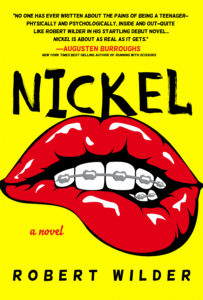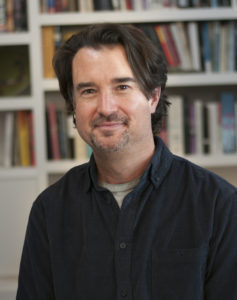“The Complexity of the Teenage Experience”
About a dozen years ago, I brought the writer Tom Perrotta to the school where I teach. Tom’s novel Little Children had just been published to much acclaim so, in addition to assigning the work to my eleventh graders, I offered to lead a book group with parents. Since I work at an independent school, I’m fortunate enough to have the freedom of teaching contemporary literature in addition to inviting authors to visit my classes. Some fairly controversial works have entered my syllabus, but I was very surprised at some of the parents’ reaction to Little Children. They were agitated by the extramarital affairs in the novel and questioned whether the book should be read by their own (not so little) children. I realized that since this novel was set in a community not unlike ours, it hit a bit too close to home. I asked Tom to address the parents, and he offered them the story of his own reading life and how, by tackling challenging fiction, he was able to develop a relationship with his own mind. He didn’t defensively argue that most internet-fluid teenagers had access to far racier material. Instead, he highlighted the benefits of thoughtful art to young minds.
As a teacher and a writer, I think often of Tom’s talk. We are in such a fearful and reactionary time that I worry that complex and challenging reading can be easily reduced to trigger warnings or quotes pulled out of context. Many people don’t give the young mind the benefit of the doubt and allow apprentice readers to decide if a book is right for them. In my twenty-five years of teaching, I’ve never seen a book do any harm. In fact, I’ve noticed how literature has ignited teenagers or connected to a voice deep inside a boy or girl. Every year, I teach Junot Diaz’s The Brief Wondrous Life of Oscar Wao, and I usually get one or two parent complaints. I offer to meet with the parent to discuss Diaz’s novel and the possibility of assigning a different text only after the parent has finished reading Oscar Wao in its entirety. In the nine or so years I’ve been teaching Oscar, I have yet to have one of those meetings.
I’ve been thinking about this topic a lot since I wrote NICKEL. I really wanted to capture the truth around the characters of Coy and Monroe and not worry about trigger warnings or censorship. I have spent thousands of hours around teenagers and read tens of thousands of pages of their work, and I didn’t want to simplify or diminish the complexity in the teenage experience. Not all of the thoughts, words, and actions of any individual are safe, harmless, or politically correct. We need to look at the whole of any book the same way we look at the whole child. Anything less would be detrimental to their identity and our own understanding of the world.
About the Book: A STORY ABOUT LOVE, LOSS, AND LOYALTY. Being a teenager is hard enough without your mother in rehab and your slightly inept stepfather doing his best not to screw things up. But at least, Coy has Monroe. Coy is a quirky teenage boy and his best friend Monroe is a girl who is just as odd and funny and obsessed with 80’s culture as he is. So when Monroe comes down with a mysterious illness, his inner turmoil only grows. As Monroe gets sicker and Coy gets a girlfriend from another social crowd, the balance tips and Coy has to figure out how not to give up on his friend, his family, or himself. Nickel is a hilarious, heartbreaking and honest portrayal of the complicated world of being a teenager today.
About the Author: Robert Wilder is the author of two critically acclaimed essay collections, Tales From The Teachers’ Lounge andDaddy Needs A Drink, both published by Delacorte Press. His young adult novel, Nickel, was published by Leaf Storm Press in 2016.
A teacher for twenty-five years, Wilder has earned numerous awards and fellowships, including the inaugural Innovations in Reading Prize by the National Book Foundation. He has published essays in Newsweek, Details, Salon, Parenting, Creative Nonfiction, plus numerous anthologies and has been a commentator for NPR’s Morning Edition. Wilder lives in Santa Fe, New Mexico.
Website. www.robertwilder.com
Facebook: https://www.facebook.com/RobertTWilder/
Twitter: https://twitter.com/RobertTWilder
Instagram: https://www.instagram.com/robert.t.wilder/
Thank you Robert for this post on respecting the teenagers in our life!



